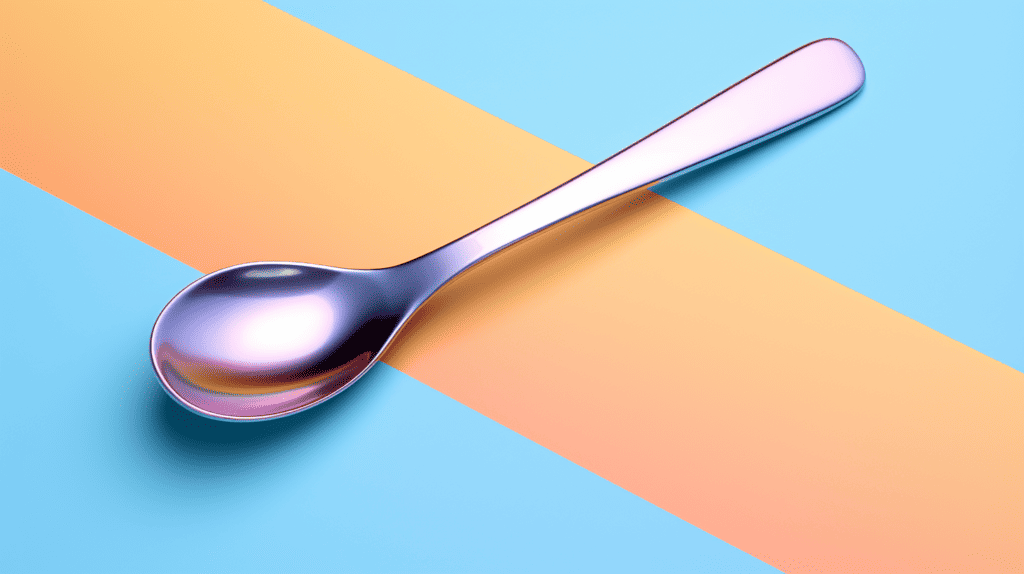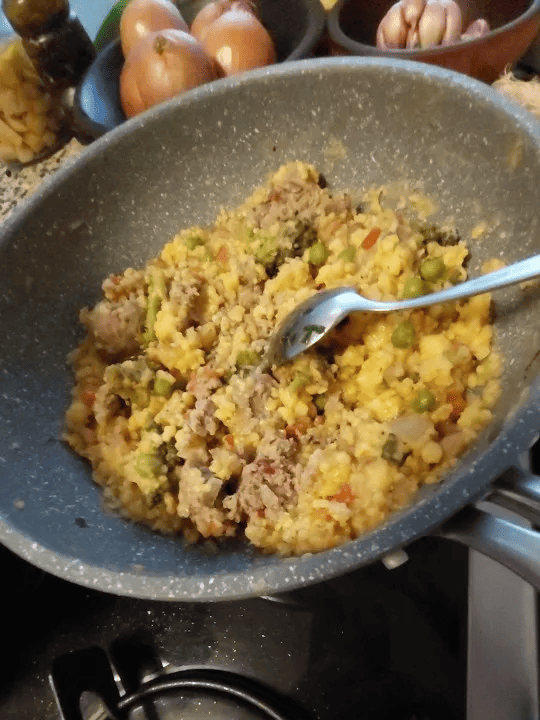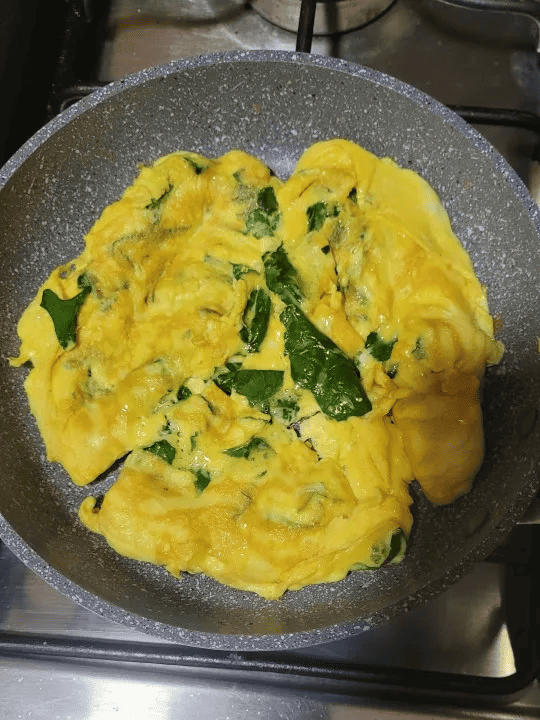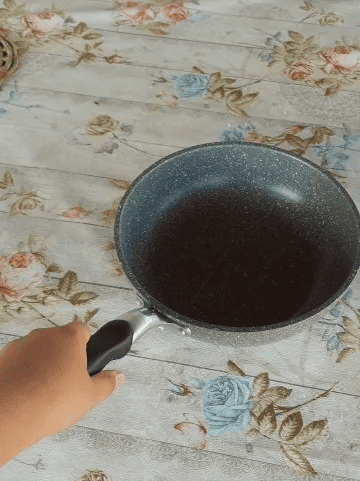
Do you ever notice a metallic taste when you eat with metal utensils? It’s not uncommon to experience this phenomenon, and there are a few reasons why it may be happening.
One reason for the metallic taste could be due to the type of metal used in the utensil. Different metals can have different tastes, and some people may be more sensitive to these tastes than others. Another reason could be that the metal utensil has been exposed to certain foods or chemicals that have caused it to corrode, leading to a metallic taste.
While a metallic taste when eating with metal utensils is usually harmless, it can be an unpleasant experience. If you’re looking to avoid this taste, there are a few things you can do, such as choosing utensils made of different materials or properly cleaning and storing your metal utensils to prevent corrosion.
Understanding the Metallic Taste
If you’ve ever experienced a metallic taste in your mouth when eating or drinking, you’re not alone. This sensation is known as dysgeusia, and it’s a common condition that affects many people. Here’s what you need to know about the metallic taste in your mouth:
What Causes the Metallic Taste?
There are many possible causes of a metallic taste in your mouth. Some of the most common include:
- Medications: Some medications can cause a metallic taste as a side effect. This includes antibiotics, antihistamines, and blood pressure medications.
- Dental issues: If you have dental problems such as gum disease or tooth decay, you may experience a metallic taste in your mouth.
- Medical conditions: Certain medical conditions such as acid reflux, kidney disease, and liver problems can cause a metallic taste.
- Nutritional deficiencies: A lack of zinc, copper, or vitamin B12 in your diet can cause a metallic taste.
- Pregnancy: Many pregnant women experience a metallic taste in their mouth, especially during the first trimester.
How Can You Treat the Metallic Taste?
The treatment for a metallic taste in your mouth depends on the underlying cause. If the metallic taste is caused by medication, your doctor may be able to switch you to a different medication. If it’s caused by a medical condition, treating the condition may help alleviate the metallic taste.
In some cases, there may not be a clear cause of the metallic taste. In these instances, you can try some home remedies to help alleviate the sensation. These include:
- Drinking plenty of water
- Chewing gum or sucking on hard candies
- Brushing your teeth and tongue regularly
- Avoiding foods that trigger the metallic taste, such as acidic or spicy foods
Overall, a metallic taste in your mouth is usually not a cause for concern. However, if the sensation persists or is accompanied by other symptoms, it’s important to see your doctor to rule out any underlying medical conditions.
The Role of Metal Spoons
Metal spoons are one of the most commonly used utensils for eating and cooking. They are durable, easy to clean, and can be used for a variety of tasks in the kitchen. However, some people may experience a metallic taste when using metal spoons, which can be unpleasant and even alarming.
There are several factors that can contribute to the metallic taste when using metal spoons. One of the most common causes is a reaction between the metal and your saliva. This can happen when the metal spoon comes into contact with your mouth, causing a chemical reaction that produces a metallic taste.
Another factor that can contribute to the metallic taste is the type of metal used in the spoon. Different metals can have different tastes, so you may notice a difference in taste when using a stainless steel spoon versus a titanium spoon, for example.
It is also possible that the metallic taste is caused by a reaction between the metal spoon and certain foods. For example, acidic foods like citrus fruits or tomatoes can cause a reaction with the metal, leading to a metallic taste.
To avoid the metallic taste when using metal spoons, you may want to consider using spoons made from non-reactive metals like gold or plastic. You can also try using a spoon made from a different type of metal to see if the taste improves. Additionally, it may be helpful to avoid acidic foods or drinks when using metal spoons.
Factors Influencing the Metallic Taste
If you’re experiencing a metallic taste when eating with your spoon, there could be several factors at play. Here are some of the most common:
Type of Food
Certain types of food can contribute to a metallic taste in your mouth. For example, beef that tastes like metal could be a result of the way it was processed or packaged. Additionally, if the beef was in contact with metal utensils or pans during cooking, it could absorb the metallic flavor. Other foods that may contribute to a metallic taste include:
- Citrus fruits
- Coffee
- Tea
- Chocolate
- Alcohol
Temperature of Food
The temperature of your food can also affect the metallic taste. Hot foods and beverages may cause metal ions to leach out of your spoon and into your mouth, resulting in a metallic taste. On the other hand, cold foods and beverages may cause your taste buds to become more sensitive, making the metallic taste more noticeable.
Personal Health Condition
Certain health conditions can also contribute to a metallic taste in your mouth. For example, if you’re taking multivitamins with heavy metals such as chromium, copper, and zinc, or prenatal vitamins and iron or calcium supplements, it could cause a metallic taste. Additionally, cancer therapy, nasal passage injuries, and some medications can also produce metallic taste changes.
It’s important to note that if you’re experiencing a persistent metallic taste in your mouth, you should talk to your doctor. They can help determine the underlying cause and recommend appropriate treatment.
Preventing the Metallic Taste
If you’re tired of the taste of metal in your mouth every time you eat, there are a few things you can do to prevent it. Here are some tips to help you avoid the metallic taste.
Proper Cleaning of Spoons
One of the main reasons for a metallic taste in your mouth is the use of dirty or poorly cleaned spoons. To avoid this, always make sure to clean your spoons thoroughly after each use. Use hot water and soap to remove any food particles or residue. You can also use a dishwasher to clean your spoons, but make sure to use a detergent that is specifically designed for dishwashers.
Another way to prevent a metallic taste is to use a spoon made of a non-reactive material. Stainless steel, for example, is a common material used in spoons that does not react with food and does not leave a metallic taste.
Using Non-Metal Spoons
If you’re still experiencing a metallic taste after cleaning your spoons, consider using non-metal spoons. Plastic or wooden spoons are great alternatives that do not leave a metallic taste. If you prefer the feel of metal spoons, consider using spoons made of non-reactive metals such as titanium or gold.
In addition to using non-metal spoons, you can also try using disposable spoons made of paper or plastic. These are great for when you’re on the go or don’t have access to clean utensils.
By following these tips, you can prevent the metallic taste and enjoy your meals without any unwanted flavors.
Conclusion
In conclusion, there can be several reasons why your spoon tastes like metal. It could be due to the type of metal used to make the spoon, or it could be a result of the food you are eating. It is also possible that the metallic taste is a symptom of an underlying health condition.
If you suspect that your metallic taste is due to a health condition, it is important to consult with your healthcare provider. They can help diagnose any underlying medical issues and provide appropriate treatment.
In general, if you experience a metallic taste in your mouth, it is likely nothing to be too concerned about. However, if the taste persists or is accompanied by other symptoms, it is important to seek medical attention.
To prevent your spoon from tasting metallic, you can try using spoons made from different materials such as plastic or wood. Additionally, avoiding certain foods that may react with metal utensils can also help. Overall, being mindful of what you eat and being aware of any changes in your taste buds can help you avoid the unpleasant metallic taste.
Frequently Asked Questions
What causes a metallic taste when using silverware?
A metallic taste when using silverware can be caused by a variety of factors, including the type of metal used to make the silverware. Stainless steel, for example, can sometimes leave a metallic taste in your mouth. Other possible causes include certain medical conditions, such as dysgeusia or burning mouth syndrome, which can affect your sense of taste.
How can you get rid of a metallic taste on silverware?
To get rid of a metallic taste on silverware, you can try washing the silverware with soap and water or soaking it in a mixture of vinegar and water. You can also try using a different type of silverware or utensil, such as plastic or wooden utensils.
Is it normal for metal spoons to have a taste?
No, it is not normal for metal spoons to have a taste. If you are experiencing a metallic taste when using metal spoons, it could be a sign of a medical condition or an issue with the quality of the silverware.
What are the symptoms of tasting metal?
The symptoms of tasting metal can vary depending on the cause of the taste. Some common symptoms include a bitter or metallic taste in the mouth, a burning or tingling sensation in the mouth, and a change in your sense of taste.
Why does silverware sometimes taste sour?
Silverware can sometimes taste sour due to a buildup of bacteria or food particles on the surface of the silverware. To prevent this, it is important to wash your silverware thoroughly after each use and to store it in a clean, dry place.



